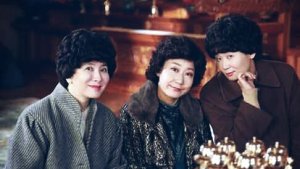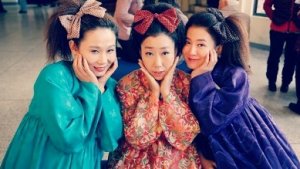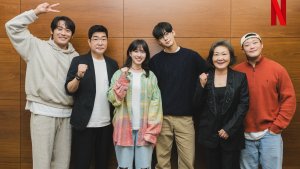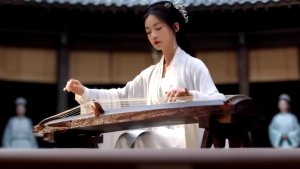 Ask An Ahjumma ~ Spring Episode
Ask An Ahjumma ~ Spring Episode
It’s that's time again! The time for us ajummas to answer your questions!

We'd love to get a big variety of questions from you! Feel free to send questions about tropes and foibles, how dramas (and movies) relate to our lives, frustrating - and not so frustrating - aspects of being a drama fan, weird character quirks, and whatever else you can think of... Please send a message to askanajumma with your questions!
Disclaimer: We love answering your questions, but we're by no means experts. Like you, we are big fans of drama. We truly appreciate your queries & hope that we are able to answer your questions to your satisfaction.
ATTENTION: We ajummas are looking for a few assistants who are fluent in the following languages: Korean, Japanese, and Mandarin (and even Cantonese and Thai). There is no age requirement. We just ask that you have fluency in the language. Send a message to askanajumma if you're interested in helping us out a little bit on a very part-time basis. :)
On with the questions!!

"I've watched almost all types of dramas so far, from melodrama to medical to romantic comedy. But what I'm really wanting to get into are sageuks. I've read lots of articles about them and they sound interesting, even though I've never been much of the history type. What are some good sageuks that you recommend if I'm just starting out with them?"
- techlady1223
--------
Dear Techlady 1223,
Thanks for your question about my favourite genre of Korean dramas. I have to say that although saeguks might sound heavy going for a lot of people I personally really enjoy them very much for many reasons.
The main reason is that thanks to them I get to learn about the history of Korea in an easy and pleasant way. In fact, after watching my first two or three saeguks I became more curious and started reading books about what happened to this amazing country which had to go through so much hardship because of invading nearby countries like China and Japan.
The other reasons for which I am fascinated by saeguks are the amazing settings in which the stories are filmed i.e. the luxurious palaces, forests, gardens, lakes and the incredible costumes the actors wear.
Yes, sometimes the stories themselves can include quite a lot of politics besides the usual romance, family ties and friendship themes. However, I never find them boring because of the sense of adventure that I feel whilst I am watching them.
Furthermore, I have to say that they are produced in such high quality filming that they are so beautiful to the eye and really make us feel as though we are part of the story.
I hope I have convinced you even more to try watching this unique genre of Korean dramas.
For a beginner in this genre I would start with saeguks which don’t include too much politics such as The Moon that Embraces the Sun, Arang and the Magistrate (both have a little bit of magic and special effects), The Princess' Man, Sungkyunkwan Scandal (a saeguk with a modern type story), Iljimae, Gu Family Book and Warrior Baek Dong Soo. Once you have watched these and, hopefully, you get hooked on this genre I highly recommend my favourites which are a Tree with Deep Roots, The Painter of the Wind and Secret Door.
Happy Saeguk watching!!
- Chatty A
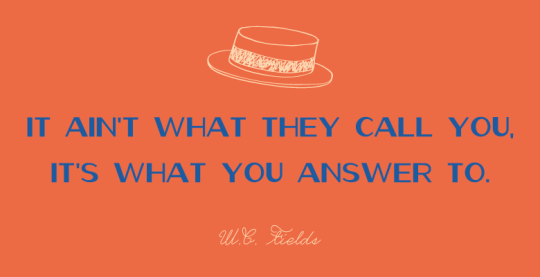
"I was recently watching The Producers, and Ye Jin kept referring to Joon Mo as "Joon Pal/Joon Bal". I have scoured the internet trying to figure out whether it is some sort of affectionate nickname form in Korean or what, but the only thing I learned was that pal/bal means "foot" or "paw." Do you guys know what is up with that? It sounds like a friendly nickname in context, but I totally don't get how the literal translation and my impression of what it means relate.
Komsamnida!"
~ JacquelineHinesHaun
--------
Darling JHH – Since Producers was not on my watch-list, I am not familiar with that specific Korean nickname however I am familiar with the practice of nicknames in other dramas. Koreans have nicknames; these usually come from their personal characteristics like appearance, a physical defect, or the word has similar pronunciation with his name. Unfavorable nicknames are more common than favorable ones. After growing up, being called by nicknames is very rare which is demonstrated in dramas with a more mature storyline and characters.
A US centric example of names/nicknames is in the classic novel “ To Kill A Mockingbird – Harper Lee.” Lets explore a few of the key characters to see the impact of names (nicknames) and the importance they have on the storyline-drama.
Scout: is always searching for answers, her personality is such that she is always seeking
Boo – Arthur: of course is meant to be scary, but it’s such a childish word that it’s terribly fear-inducing. Also, Boo’s proper name, Arthur, sounds completely harmless, and reflects his true nature.
Atticus: name is a nod to the Roman orator known for his just decisions.
Final Thought:
“Must a name mean something?“ Alice asked doubtfully.
"Of course it must, Humpty Dumpty said with a short laugh; “my name means the shape I am - and a good handsome shape it is, too. With a name like yours, you might be any shape, almost.” ?- Lewis Carroll
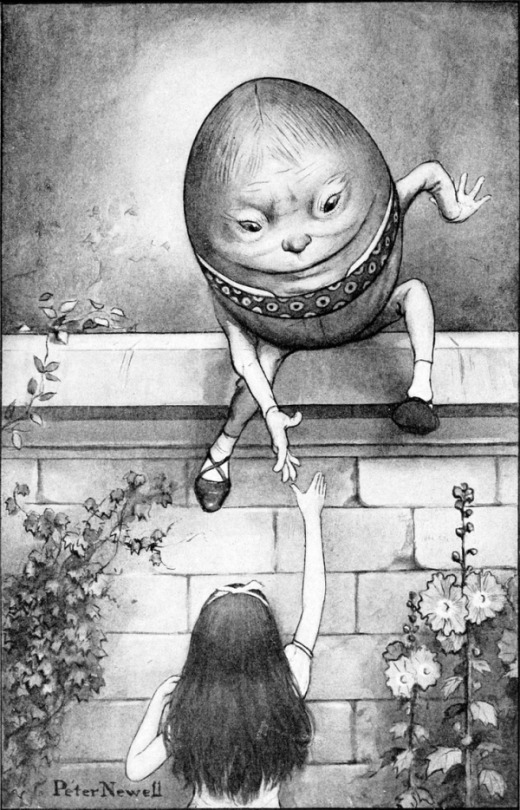
~ Bookish A
"Ajummas,
My favorite dramas are those that have a forbidden love aspect. Ones that I have watched and loved include: Guilty Akuma to Keiyakushita Onna (detective x criminal), Secret Love Affair (older married woman x younger man), Mitsu no Aji (niece x uncle), Majo no Jouken (male student x female teacher) and Cruel Romance (gang leader x orphan). As you can likely tell, I prefer dramas (or movies) that are dark in tone yet demonstrate a deep passionate love between the leads. Do you know of any other dramas/movies like the ones I listed above?"
-- amourexdil
--------
Dear fellow addict,
I was able to come out with few recommendations that fit under the ‘forbidden love’ title.
Kou Kou Kyoushi: Love story that blossoms between a male teacher and his female student. It’s the perfect example of a forbidden love story that slowly linked the two of them. There are many dramatic ups and downs in this one. Just prepare yourself.
Devil Beside You: This drama is about two high school students whose parents got married. Although they’re not blood related but there was the forbidden love aspect between them. Their parents treated them like siblings and it was so hard for their relationship to blossom under such circumstances.
Hirugao: It’s all about affairs and secret meetings. It could be considered a very well-illustrated forbidden love tale that works in both ways. It’s about housewives desperation and the route they chose to escape. It’s compelling if you follow it throughoutly.
Loveholic: Another student-teacher love story. But this time, it’s a problematic male student who falls for his sweet innocent female teacher. It develops into a dramatic journey with lots of angst.
That’s all what I could come up with. I wish you will enjoy watching them.
~ Romantic A
"Dear Ajumma,
Can you tell me if you like high-school dramas? Which are your favourite? I think that after I graduated I prefer watching dramas in which characters are adult, not teenagers, so I wonder if it has some connection with my age, or I just get bored.
Maybe you know dramas where characters are students [at University]? Not high-schoolers or adult.The only one I know is Playful Kiss [and Japanease version - Itazura Na Kiss]."
- Klaudia

Dearest Klaudia,
Personally, I love them. I also feel like I’m never going to grow up, so there’s that... LOL! High school dramas are usually the cheesy, happy, lovey stuff I live for. A few that I’ve watched several times are To The Beautiful You, Playful Kiss, and Boys over Flowers (although I skip through a lot of it when I rewatch this one).
I don’t think that preferences in what you watch have a lot to do with age, but more how you change or (and I’m not saying this is the case with you, but it is for a lot of people) people alter how they think based on what they think other people expect of them.
As for college level dramas, I can only think of Love Rain, Heartstrings, and Reply 1994.
~ Obsessive A
"So this is probably going to sound like a really stupid question but I've noticed that in almost every drama I've seen, the actors and actresses hold their silver ware kind of weird. I was wondering if it's simply because they don't handle silverware as often as Americans do or if they just eat with their elbows out and an over exaggerated chomp of the spoon as part of their acting to emphasize how much they are enjoying the meal. Its just something I've always kind of wondered."
- EverettDelaney
--------
Dear Everett,
I noticed the same thing, but I don’t think it’s just a Korean thing. I’ve seen non-Koreans eat the same way. Also, it can’t be that they’re not used to handling silverware. The spoon is as much a part of their table setting as the chopsticks. The spoon is generally used for eating soup and rice while the chopsticks are used for everything else. Like all other cultures, Korea does have rules of etiquette that should be followed. Such rules of etiquette include: seating arrangement, eating order (do not eat until the elders start first), chopstick and spoon etiquette (don’t hold them in the same hand at the same time), rules of cleanliness, and how quietly to eat (source: visitkorea.or.kr).
I don’t live in Korea, so I can’t see first-hand how most Koreans eat using their spoons, but I imagine most of them – when placed in a formal eating situation – will hold their spoons the proper way for the given situation. After all, I have seen a few dramas where the poor girl/boy is invited to eat with a person who has more seniority (for example: boss, rich older boyfriend/girlfriend, grandparent, or aunt/uncle). In those instances they will do their best to eat properly so as not to appear slovenly in polite company. And honestly, there is nothing wrong with holding their spoon differently from those in western countries.
However, in most dramas you’ll find characters who don’t have very good table manners – even by Korean standards. This is common in any country. There are possibly 2 reasons for this: The first reason has to do with socio-economic environs. Those in poorer households aren’t always taught proper etiquette for dining in polite society. The second reason is simply this: when you’re eating by yourself or in a casual setting you’re less likely to use good table manners. Example: a person I knew several years ago would eat his cereal holding his spoon the same way 2-year olds hold their spoons. He did this in the comfort of his home and in a very relaxed environment. However, when in a more formal dining setting he would hold his spoon the “proper” way and followed the basic rules of etiquette.
Environment does play a big part in how we eat. Ask yourself, “How often do I forego table manners while eating by myself or with very close friends?” Do you find yourself licking the bowl after a delicious ice cream or even licking your fingers after a tasty barbecue? Then there is popcorn or french fries (chips) or potato chips (crisps): many will eat it by the handful when by themselves, but when surrounded by others they will often delicately eat just one or two pieces at a time. I personally call it "a pig when alone, but a bird when with a friend" style of eating. :)

We can’t be quick to judge how someone else eats their food. Everyone is raised differently and has their own traditions and customs. The thing we can do is learn from each other and learn how not to offend someone else when eating in their territory.
- Introspective A




